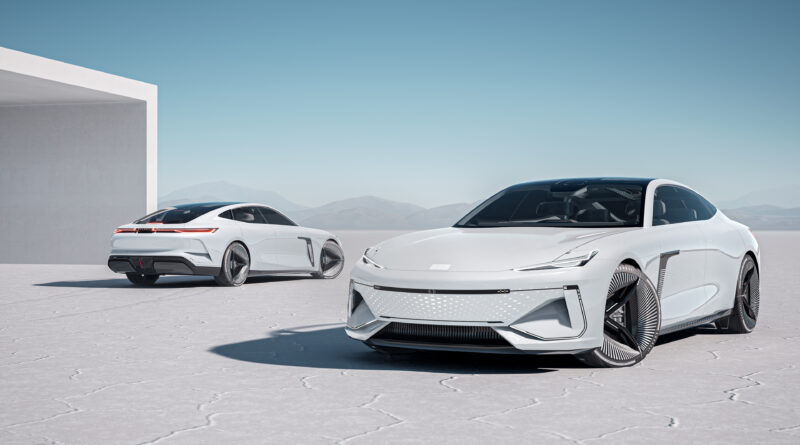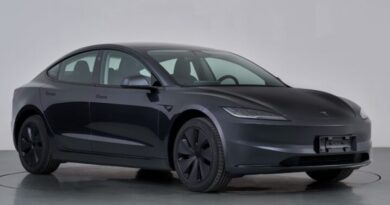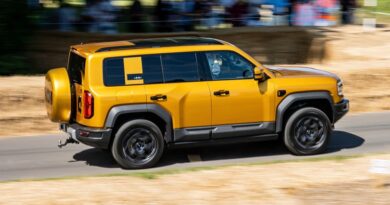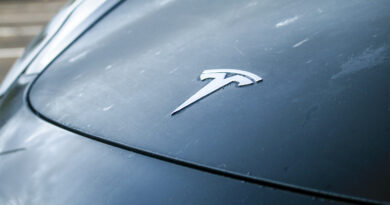China’s Geely launches new electric brand Galaxy
China’s ambitious independent auto brand Geely has dramatically upped its electric vehicle attack, announcing a new brand called Galaxy that plans to launch seven vehicles within the next two years.
Launched spectacularly last month in Hangzhou, Galaxy showed off a tech-laden concept BEV dubbed Light, as well its first production vehicle, the plug-in hybrid L7 SUV.
The L7 will go on-sale in China in the second quarter of 2023 followed by the L6 sedan in Q3.
The first BEV will be the E8 in the fourth quarter of 2023, which the Light apparently previews.
How much of the Light’s design and tech the E8 includes will be interesting to see. It has a super low 0.19 drag coefficient (Cd), butterfly front doors, rear-hinged rear doors, a full length dash display and translucent materials. No performance data was revealed.
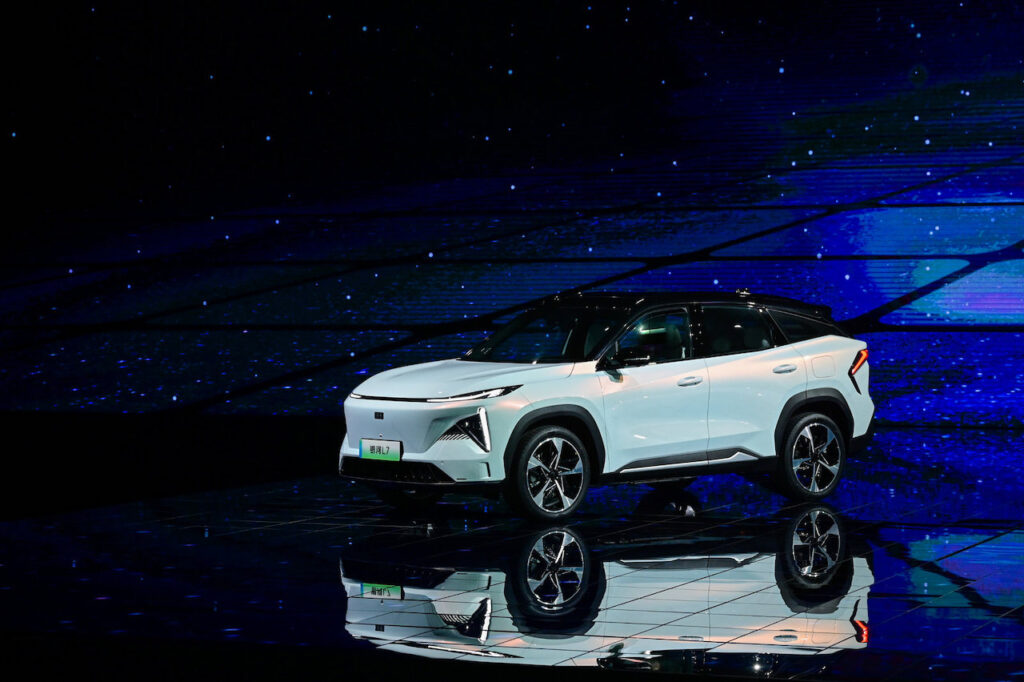
Plans for Galaxy beyond China were not announced, but there were references to the brand’s models having “full global coverage” for mapping and driver assistance provided by a network of 72 Geely low orbit satellites that will all be launched by 2025.
Geely is among the most ambitious of global auto manufacturers. Apart from the original Geely Auto brand, the corporation owns or has a share of Volvo, Polestar, Lotus, Lynk & Co, Zeekr, Proton and Smart.
It also owns lesser-known domestically focussed brands such as Geometry and newly launched Radar.
Before the launch – as we reported – there was speculation the new brand would be called Milky Way, but that proved a bit off-beam.
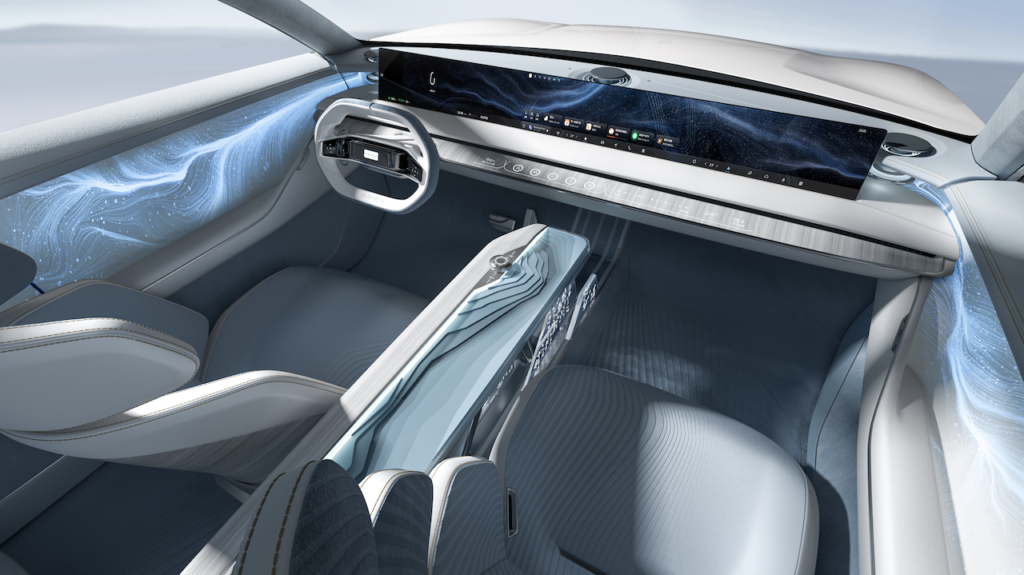
As well as Galaxy vehicles, Geely Auto used the event to roll out a slew of new technologies including the NordThor Hybrid 8848 powertrain (the number denotes the height of Mount Everest in metres), Aegis battery safety system and a smart vehicle operating system dubbed Galaxy N-OS.
BEV models will be underpinned by the latest version of Geely’s SEA architecture while the PHEVs will employ a platform called e-CMA co-developed with Volvo.
The L7 will debut the NordThor powertrain, which is claimed to be the most thermally efficient mass production unit in the industry at 44.26 per cent. It also improves fuel efficiency by 15 per cent thanks to an “industry-first” predictive energy management system.
Driving via a three-speed transmission, Geely says the NordThor powertrain can deliver 287kW or 488kW, although the L7’s 7.5 sec 0-100km/h time and 200km/h top speed don’t suggest it’s got that sort of power.
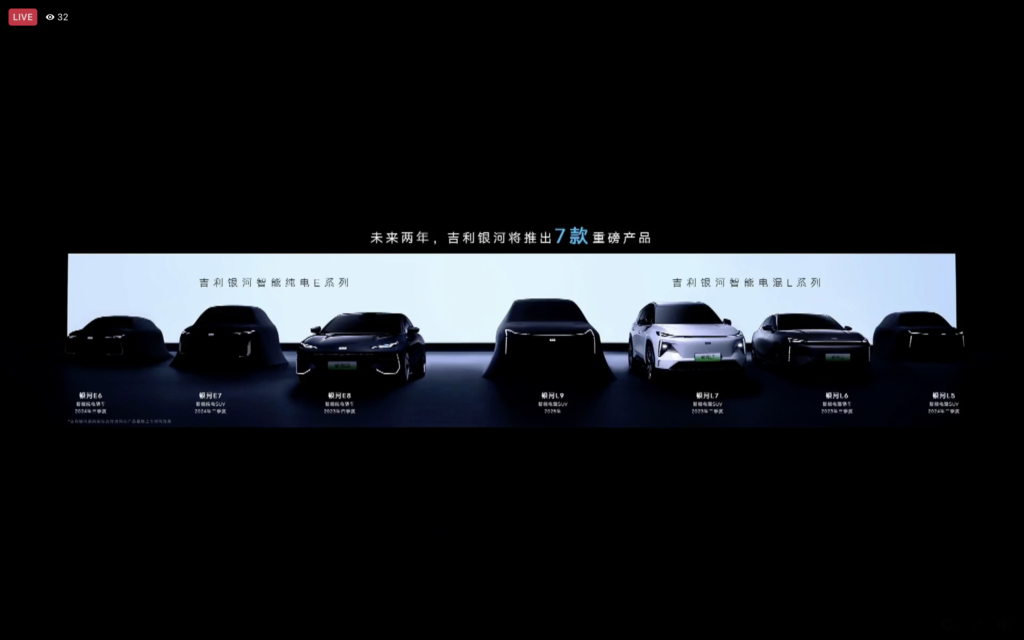
Buyers are likely to be more impressed by the 5.23L/100km (WLTC) consumption claim and the 1370km range on a single tank. Pure electric battery range has yet to be announced.
Inside the L7 there are four large displays: a 10.25-inch instrument panel, a 13.2-inch centre control screen, a 16.2-inch co-pilot screen, and a 25.6-inch head up display.
The L7 is 4700mm wide, 1905mm wide and 1685mm wide. The wheelbase is 2785mm.
Orders opened for the L7 in China recently, with pricing starting at the equivalent of $42,500.

